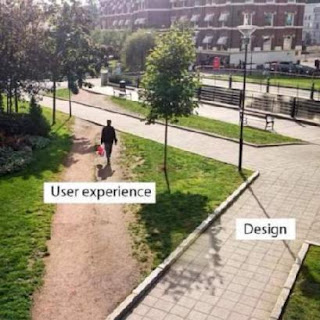Society represents a collection of people who have needs that must be met. Some are basic like safety, food, water, sanitation, healthcare, etc. Others are more "luxury" like entertainment and recreation. The driving issue for society is which institutions of society will scratch which itch? There are basically four possibilities - commerce, charities, families, and the government.
Commerce scratches societies itches when people can organize themselves to offer products and services to society that can provide economic benefit to those who invest their money to provide what meets the needs and wants. The purpose of a business is to "create customers". If organizations cannot make a profit scratching itches, then non profit institutions develop when enough of society feels the products and services are worthy enough that people will donate resources necessary to meet the needs/wants. These non profit organizations form when there exists sufficient critical mass of needs that families cannot meet them, especially as families have fragmented in recent times. The government forms organizations to scratch society itches when society believes none of the other institutional options can or are meeting the needs/wants of society as society would want. This can be because the interest of society is not best met by economic oriented markets and involves the entirety of society, such as national defense, or because non government options to scratch society's itches have the potential to "damage" society.
A great example of how the ingenuity of society can generally figure out how to best scratch society's issues is the area of interpersonal communication. Society needs people to get information from one person to another across distances. For most of history, people used "runners". The telephone was invented which allowed individuals to talk with each other. Initially, this service was offered by private, profit oriented organizations but society felt that it needed to protect itself from being taken advantage of by the "greed"motives of private, profit oriented providers, so government was asked by society to regulate the actions of private organizations to limit any "damage" that may occur while scratching the itches of communication. However, there were communication needs the telephone could not meet, such as mail and packages. To meet this unmet need, government formed the Postal Service. Over time, individuals in society saw that they could meet these needs too and create economic value doing so. First there were delivery services such as Fed Ex and UPS. Then, technology afforded opportunities for electronic mail which was instantaneous and distance insensitive and Skype, which even offers seeing each other while we speak. Now today, the government's role in communication is questionable. First class mail has decreased 25% in just a couple of years and the government loses billions each year trying to provide services to society. Why is government still involved?
The operative principles as to whether private or government organizations ultimately scratch society's itches are this - the profit factor forces efficiency and government sponsors fairness. The mortgage industry is a perfect example. Private banks formed to provide credit to society so that people could buy something today and pay for it tomorrow. However, banks collected their money to loan from society by offering interest on savings and as doing so put society at undue risks if the banks failed - so society asked government to regulate. Moreover, banks were not "fair" in that many people could not qualify for loans and thus could not get their itches scratched. Enter government again (Fannie and Freddie) to inject "fairness" into the credit business. When fairness, NOT profit, is the driving force, the economic value of scratching society's itches falters and society can afford less of it.
Healthcare is next, following the same pattern as credit. Who ultimately scratches these itches of society will be the outcome of society's view of whether their itches are based on "justice" or "efficiency". In the case of society, when "justice" is the norm of equality rather than equity (see earlier blogs), society splits between the market or government as the answer because equal outcomes and profit motive are in contradiction with one another. This is not a moral question but simply one that determines the standard of living associated with each choice - just ask Europe --
Almost every challenge our society faces is grounded in this question --- something to ponder!!!


No comments:
Post a Comment